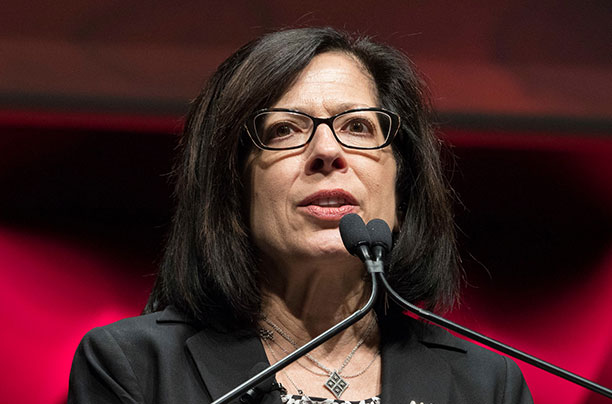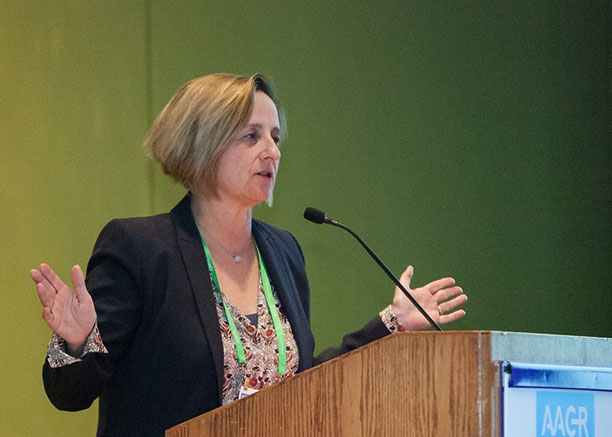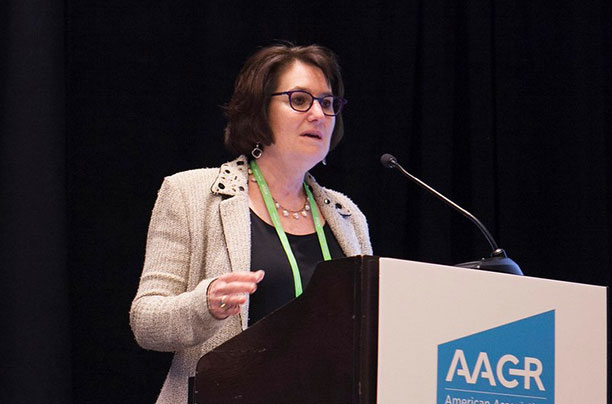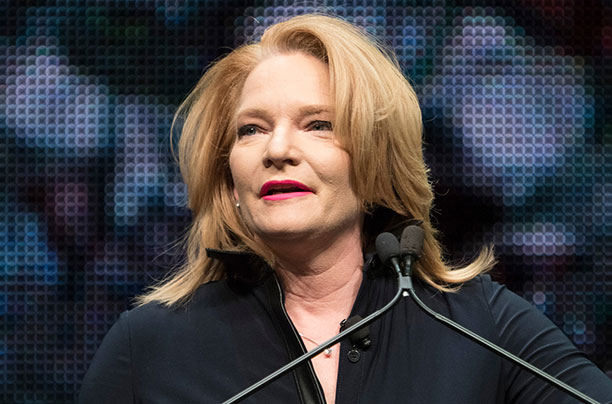A LOOK AHEAD
AACR President (2018-2019) and Fellow of the AACR Academy Elizabeth M. Jaffee, MD (right), will lead the organization’s efforts to explore and advance two critical areas of cancer science by serving as the chair of two Future of Cancer Research Innovation Summits to be launched in 2019:
Advances in cancer science require continuous international collaborations, and international collaborations require a trusted broker to bring together scientists, clinicians, regulators, and patient advocates from around the world. The AACR is such a broker, and in 2019 the organization will facilitate several collaborations in critical areas required to catalyze progress against cancer.
The ACCELERATE platform is the premier European forum for addressing issues associated with the development of innovative anticancer medicines for children and adolescents with cancer. Created in 2013 by the European Consortium for Innovative Therapies for Children with Cancer (ITCC) and the European Society for Pediatric Oncology (SIOPE), the platform supports collaborations among pediatric oncologists and clinicians, industry scientists, regulatory bodies, and patients to identify and overcome pediatric cancer drug development challenges.

In June 2018, ITCC and SIOPE launched a project to reorganize and expand the ACCELERATE platform beyond Europe, strengthening international cooperation to improve the global development of new pediatric oncology drugs. In 2019, the AACR Pediatric Cancer Working Group (PCWG) will work with ITCC and SIOPE to realize that vision. Chaired by Crystal L. Mackall, MD (right), the PCWG will facilitate the coordination of efforts among European and U.S. drug developers, ensuring that pediatric and adolescent cancer patients around the world benefit from advances in drug development.

The AACR advances the frontiers of cancer science by understanding the field, identifying the forces impacting the field, and taking a leadership role in responding to those potential changes. In February 2019, in association with its Molecular Epidemiology Working Group (MEG), the AACR will host a special conference on "Modernizing Population Sciences in the Digital Age."
Chaired by MEG Steering Committee members Melissa L. Bondy, PhD (right), and Peter Kraft, PhD, along with Marc T. Goodman, PhD, and Sophia S. Wang, PhD, the conference will address the ways in which population scientists can transform their methodologies to incorporate "big data," including data from wearable technologies and electronic medical records. The conference will also address the use of mobile and social media outreach for study recruitment and retention, increasing participation in population studies by responding to changes in the way populations interact.

The AACR’s international outreach has included efforts to enhance relationships with organizations in Canada. These efforts will impact several AACR programs and initiatives in 2019:
AACR leadership is committed to sustaining the pipeline of researchers in all fields of cancer science and medicine to meet the needs of cancer patients now and in the future. The recent decision by the AACR Board of Directors to eliminate dues for associate members is expected to markedly increase the number of young investigators in the AACR membership, providing valuable training and networking opportunities to early-career investigators at a critical point in their careers.
As the cancer workforce expands, the AACR will take steps in 2019 to ensure that these scientists and clinicians receive the best possible training with the launch of the AACR Education and Training Committee. Chaired by President-Elect Elaine R. Mardis, PhD (right), this new standing committee will work to expand the AACR’s portfolio of educational workshops and develop new in-person and online training opportunities—ensuring that investigators at all career stages are well equipped to face the challenge of preventing and curing all cancers.

In the coming year, the AACR will continue to pursue the objectives outlined in its Vision 2020 strategic plan, which was developed by the Board of Directors and the AACR staff in late 2016 to set a course for the organization’s growth and impact on cancer research. The strategic priorities established in the plan include a directive to “identify and foster innovative science that is of the highest priority and potential for impact in reducing cancer incidence, morbidity, and mortality.” In accordance with this directive, the AACR will strengthen its focus on several scientific priorities in 2019, including basic science, survivorship research, cancer disparities, early detection and cancer interception, hematological malignancies, new technologies, and pathology.
With the guidance of the Vision 2020 strategic plan and the leadership of its Board of Directors, the AACR and its more than 40,000 members will continue to be the most effective catalyst for the prevention and cures of all cancers.